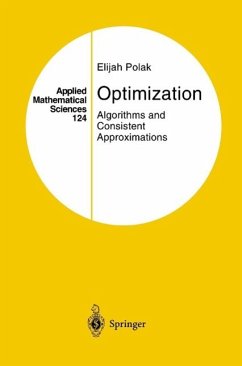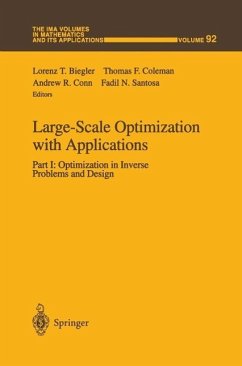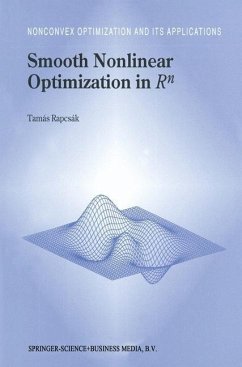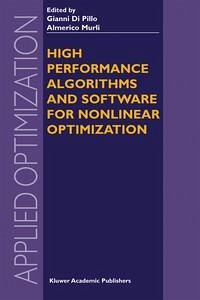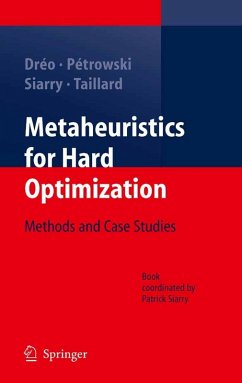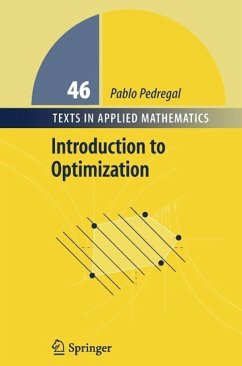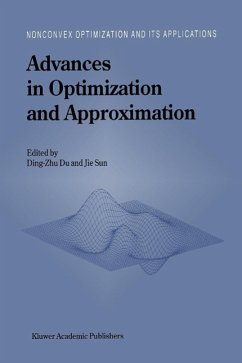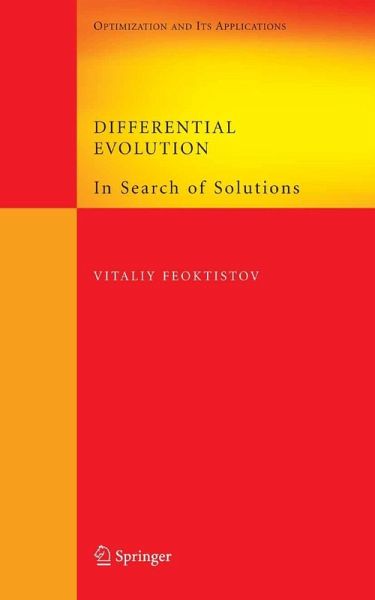
Differential Evolution (eBook, PDF)
In Search of Solutions
Versandkostenfrei!
Sofort per Download lieferbar
40,95 €
inkl. MwSt.
Weitere Ausgaben:

PAYBACK Punkte
20 °P sammeln!
Di?erential evolution is one of the most recent global optimizers. Discovered in 1995 it rapidly proved its practical e?ciency. This book gives you a chance to learn all about di?erential evolution. On reading it you will be able to pro?tably apply this reliable method to problems in your ?eld. Asforme,mypassionforintelligentsystemsandoptimizationbeganasfar back as during my studies at Moscow State Technical University of Bauman, the best engineering school in Russia. At that time, I was gathering material for my future thesis. Being interested in my work, the Mining School of Paris proposed t...
Di?erential evolution is one of the most recent global optimizers. Discovered in 1995 it rapidly proved its practical e?ciency. This book gives you a chance to learn all about di?erential evolution. On reading it you will be able to pro?tably apply this reliable method to problems in your ?eld. Asforme,mypassionforintelligentsystemsandoptimizationbeganasfar back as during my studies at Moscow State Technical University of Bauman, the best engineering school in Russia. At that time, I was gathering material for my future thesis. Being interested in my work, the Mining School of Paris proposed that I write a dissertation in France. I hesitated some time over a choice, but my natural curiosity and taste for novelty ?nally prevailed. At ¿ present, Docteur ` es science en informatique de l'EcoledesMinesdeParis,I am concentrating on the development of my own enterprise. If optimization is my vocation, my hobbies are mathematics and music. Although mathematics disciplines the mind, music is ?lled with emotions. While playing my favorite composition, I decided to write this book. The purpose of the book is to give, in a condensed but overview form, a description of di?erential evolution. In addition, this book makes accessible to a wide audience the fruits of my long research in optimization. Namely, I laid the foundation of the universal concept of search strategies design, suitable not only for di?erential evolution but for many other algorithms. Also, I introduced a principle of energetic selection, an e?cient method of hybridization, and advanced paralleling techniques.
Dieser Download kann aus rechtlichen Gründen nur mit Rechnungsadresse in A, B, BG, CY, CZ, D, DK, EW, E, FIN, F, GR, HR, H, IRL, I, LT, L, LR, M, NL, PL, P, R, S, SLO, SK ausgeliefert werden.





